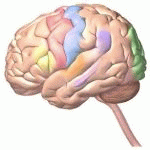Neurology
|
25 april 2015 13:15:42 |
| Characterization of Aldh2 -/- mice as an age-related model of cognitive impairment and Alzheimer’s disease (Molecular Brain) |
|
Tweet Background:
The study of late-onset/age-related Alzheimer’s disease (AD)(sporadic AD, 95% of AD cases) has been hampered by a paucity of animal models. Oxidative stress is considered a causative factor in late onset/age-related AD, and aldehyde dehydrogenase 2 (ALDH2) is important for the catabolism of toxic aldehydes associated with oxidative stress. One such toxic aldehyde, the lipid peroxidation product 4-hydroxynonenal (HNE), accumulates in AD brain and is associated with AD pathology. Given this linkage, we hypothesized that in mice lacking ALDH2, there would be increases in HNE and the appearance of AD-like pathological changes.
Results:
Changes in relevant AD markers in Aldh2
-/-
mice and their wildtype littermates were assessed over a 1 year period. Marked increases in HNE adducts arise in hippocampi from Aldh2
-/-
mice, as well as age-related increases in amyloid-beta, p-tau, and activated caspases. Also observed were age-related decreases in pGSK3β, PSD95, synaptophysin, CREB and pCREB. Age-related memory deficits in the novel object recognition and Y maze tasks begin at 3.5-4 months and are maximal at 6.5-7 months. There was decreased performance in the Morris Water Maze task in 6 month old Aldh2
-/-
mice. These mice exhibited endothelial dysfunction, increased amyloid-beta in cerebral microvessels, decreases in carbachol-induced pCREB and pERK formation in hippocampal slices, and brain atrophy. These AD-associated pathological changes are rarely observed as a constellation in current AD animal models.
Conclusions:
We believe that this new model of age-related cognitive impairment will provide new insight into the pathogenesis and molecular/cellular mechanisms driving neurodegenerative diseases of aging such as AD, and will prove useful for assessing the efficacy of therapeutic agents for improving memory and for slowing, preventing, or reversing AD progression. |
| 140 viewsCategory: Neurology |
 Efficacy of robot-assisted fingers training in chronic stroke survivors: a pilot randomized-controlled trial (Journal of NeuroEngineering and Rehabilitation) Efficacy of robot-assisted fingers training in chronic stroke survivors: a pilot randomized-controlled trial (Journal of NeuroEngineering and Rehabilitation)Simulation of alcohol action upon a detailed Purkinje neuron model and a simpler surrogate model that runs >400 times faster (BMC Neuroscience) 
|
| blog comments powered by Disqus |
MyJournals.org
The latest issues of all your favorite science journals on one page
The latest issues of all your favorite science journals on one page



